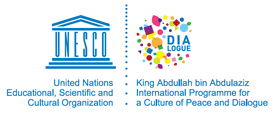Η διαμόρφωση εκπαιδευτικής πολιτικής στην Κύπρο σχετικά με την Εκπαίδευση στα Μέσα και τις στρατηγικές επικοινωνίας, βρέθηκε στο επίκεντρο της επιστημονικής ημερίδας με θέμα «Επικοινωνία και Εκπαίδευση» που διοργάνωσε η Ανεξάρτητη Κίνηση Δασκάλων και Νηπιαγωγών (Α.Κί.ΔΑ), στις 18 Μαρτίου, 2016 στη Λάρνακα.
Σκοπός της ημερίδας «Επικοινωνία και Εκπαίδευση» ήταν να ξεκινήσει κατ’ αρχήν έναν διάλογο, να προωθήσει την ιδέα της Εκπαίδευσης στα Μέσα (Media Education) και να αναδείξει την επείγουσα ανάγκη επιμόρφωσης εκπαιδευτικών και μαθητών στο θέμα αυτό.
Στην ημερίδα συμμετείχαν εκπρόσωπος του Υπουργείου Παιδείας και Πολιτισμού, της Αρχής Ραδιοτηλεόρασης, Ακαδημαϊκοί από το Πανεπιστήμιο Κύπρου και το Ανοικτό Πανεπιστήμιο Κύπρου και Δάσκαλος με ειδίκευση τα ΜΜΕ.
Συγκεκριμένα:
Η Ειρήνη Χατζηλουκά-Μαυρή, Πρώτη Λειτουργός Εκπαίδευσης Λάρνακας-Αμμοχώστου, έκανε μια εισαγωγή στο θέμα και παρουσίασε τις σχετικές θέσεις του Υπουργείου Παιδείας και Πολιτισμού.
Ο Νεόφυτος Επαμεινώνδας, Διευθυντής της Αρχής Ραδιοτηλεόρασης, εξήγησε τις θεσμικές αρμοδιότητες της Αρχής όσον αφορά την προώθηση της Παιδείας στα Μέσα, καθώς και τις εμπειρίες από την εφαρμογή βιωματικών εργαστηρίων στα σχολεία.
Η Μαίρη Κουτσελίνη, Καθηγήτρια και Πρόεδρος του Τμήματος των Επιστημών της Αγωγής στο Πανεπιστήμιο Κύπρου και Πρόεδρος του Φορέα Διασφάλισης Ποιότητας στην Κύπρο, ανέπτυξε το θέμα με έμφαση τις επιμορφωτικές ανάγκες των εκπαιδευτικών στο πεδίο του εγγραμματισμού στα Μέσα.
Η Σοφία Ιορδανίδου, Αναπληρώτρια Καθηγήτρια και Ακαδημαϊκή Υπεύθυνη του ΜΠΣ «Επικοινωνία και Νέα Δημοσιογραφία» στο Ανοικτό Πανεπιστήμιο Κύπρου, ανέλυσε τη στενή σχέση της Επικοινωνίας και των Μέσων με το Σύγχρονο Σχολείο, μέσα από το επιστημονικό πεδίο «Επικοινωνία στην Εκπαίδευση»
Ο Αντώνης Ζαρίντας, δάσκαλος με ειδίκευση τα ΜΜΕ, περιέγραψε το θεωρητικό πλαίσιο του εγγραμματισμού στα μέσα (Media Literacy), καθώς και την κατάσταση που επικρατεί στον διεθνή χώρο καταλήγοντας στο κυπριακό παράδειγμα.

